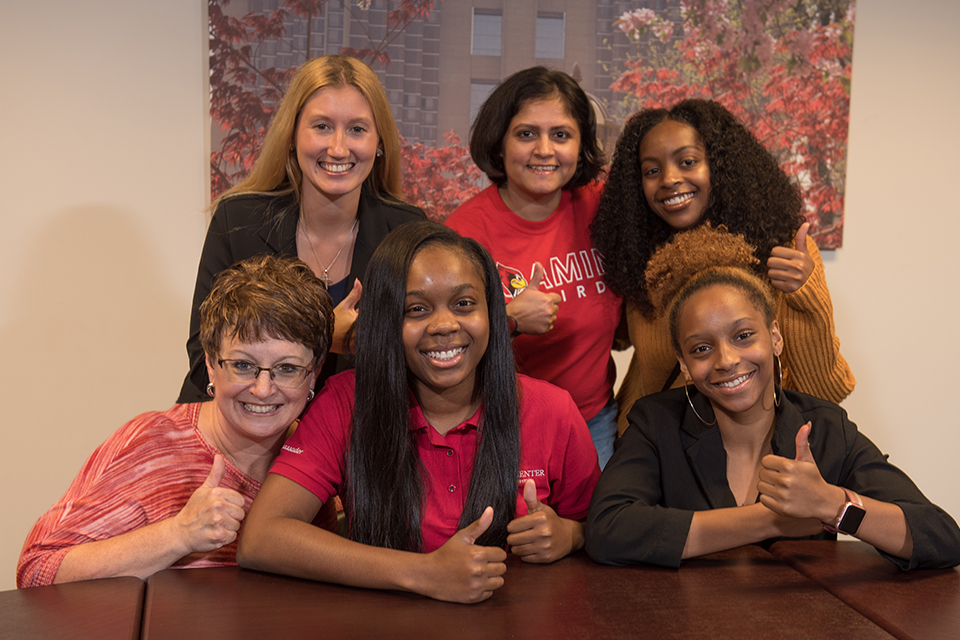Students may not know that job offers can be negotiated and are often afraid to do so, assuming that the employer will take the offer away or that the offer should be accepted without questioning. After all, shouldn’t one be honored to get an offer in the first place? The Career Center breaks those misconceptions and advises that students should, in fact, negotiate a job offer.
Employers expect negotiation
The most common misconception is that employers don’t want students to negotiate the job offer. “We encourage students that it doesn’t hurt to ask because the worst thing that can happen is that employer says no,” said Kayla Portwood ‘12, GROWMARK university relations manager.
Negotiating the offer is a common skill set that is used throughout all industries and various companies, from large corporations to smaller businesses. “You are your own advocate, so if you don’t ask for more they won’t just give you more. You have to ask, but you also have to be realistic about what your true value is and have to do that research on what that position in this market would pay and what it would possibly pay at your experience level,” said Laine Sylvester, human resources director at The Snyder Companies.
“Negotiating can be difficult especially as you attempt to get your first job; but if you do your research and if you’re prepared, you will have more success with negotiating,” states Tyler Savaglio, Career Center business analyst intern. “It’s always worth asking a question and taking a chance because the worst thing that can happen is that they say no.” In fact, Savaglio used this skill and strategy to secure a full-time position when he graduates this semester.
Consider the offer
Knowing how to negotiate a job is important because it can be beneficial for you in the long run. “It is important to think of the bigger picture, not just the money,” said Megan Kayfish, Career Center career advisor. It is important to evaluate the benefits offered by the company as those include more than just the salary. For example, the benefits can help you cover your living expenses, health insurance, retirement 401(k) programs, vacation and sick time off, flexible hours, etc.
An addition, Kayfish advises students to have actual reasons why the offer should be adjusted and to be able to back them up. Most of the time students aren’t aware of the possibility to have time to think about the offer before actually accepting it.” Students should take the time to research their current market value to fair benefits and not undersell their degree.
Be aware that sometimes the employer will not be willing or able to negotiate an offer. “If that happens, don’t take it personally. Just because they say no or you don’t get the answer you wanted it is not personal, it’s a business decision,” said Kayfish.
Negotiation is also an important part of the process of getting your first job after graduation. “Not only is negotiating the details of a job important for your financial well-being, but it also enables you to demonstrate to your future employer the type of employee you will be. For example, one who can make reasoned arguments, is collaborative, and knows their worth,” said Heather Jia, Department of Management and Quantitative Methods associate professor.
According to the Harvard Kennedy School’s laboratory and survey, evidence shows that men are significantly more likely to engage in salary negotiations than women. So women are especially encouraged to research negotiation.
Help is available
The Career Center provides a variety of tips and support to help students and alumni when preparing for a job offer.
- Schedule an appointment with a career advisor. Get help with identifying what you need to keep in mind and the tactics to use when an offer is made.
- Attend the Career Center’s programs on job negotiation. Human resources specialists and recruiting experts provide tips to students on what is involved in the decision-making process and how to negotiate with confidence.
- Review the Career Resource Guide. It includes valuable information about job offers, salary negotiations, the negotiation process, and other benefits to consider.
Negotiating for a job may be intimidating, but it’s not difficult. By utilizing the programs, resources, and services available through the Career Center, Illinois State sets Redbirds up for success. According to Portwood, “It’s really important that students know their worth. That is one of the most important things an employer seeks from a candidate when negotiating a job.”
The Career Center assists students with developing, evaluating, and implementing career decisions and supports Illinois State University’s Educate Connect Elevate: Illinois State—The Strategic Plan for Illinois’ First Public University 2018-2023
Other sources: League of Women in Government


